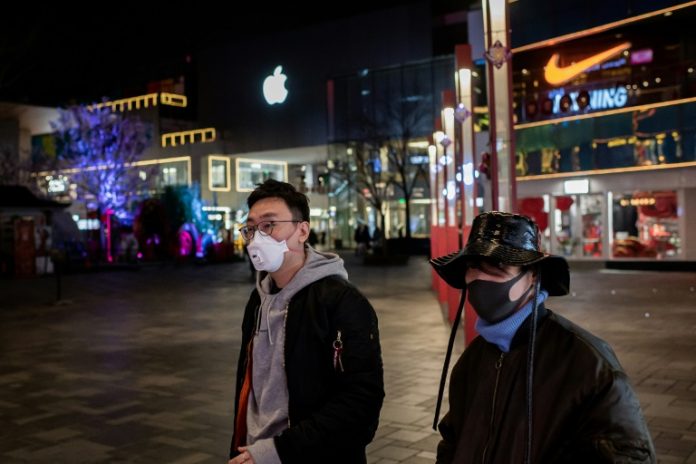Nike executives said Tuesday that shoppers in key Asian markets are beginning to return to stores as the company reported a rare drop in Chinese quarterly revenues cushioned by stronger e-commerce sales.
“Traffic is back,” Nike Chief Executive John Donahoe said of the dynamic in China that is also beginning to play out in Japan and South Korea, two other countries that are also passed the worst of the outbreak.
“Consumers are back in the stores,” he told analysts during an earnings conference call. “They are often wearing facemasks, but they’re back in the store.”
The sporting goods giant said it would press on with some new product launches originally tied to the Olympics, which became the latest event on Tuesday to be officially postponed because of the global pandemic.
Olympic organizers are doing “what’s appropriate by prioritizing the health and safety of their athletes and fans,” Donahoe said. When organized sports return, “we’ll be there,” he added.
Net income overall came in at $847 million, down 23 percent from the year-ago period.
Revenues were $10.1 billion, up five percent, with the company scoring higher sales in North America, Europe/Middle East/Africa and Asia Pacific/Latin America, offsetting a drop in Greater China after 22 straight quarters of double-digit growth.
– ‘Other side’ of crisis –
During the peak of the COVID-19 crisis in China, 75 percent of Nike-owned stores were closed in the country, but nearly 80 percent of its Nike and affiliated stores in China are currently open.
However, on March 16 Nike shuttered all its Nike-owned stores outside China, Japan and Korea due to coronavirus.
The company sketched out a multi-stage evolution in affected markets based on its China experience following a five-six week containment phase where there is a transition period before sales return to expected levels.
“We expect the next several weeks to be a challenging period for those living in the US and Europe, and I can’t precisely predict how long the containment phase of the outbreak will last,” Donahue said.
“But our experience in China, Japan and South Korea gives us confidence we will see the other side of this crisis in the near future.”
In China, digital sales increased more than 30 percent during the period when shops were closed, a trend that has been mirrored in other markets, including North America, where executives said the surge has been comparable to holiday-season levels.
Donahoe said Nike still planned to launch some new products this year that had been linked to the Olympics “when the time is right,” citing one running shoe and various products that employ recyclable material.
“I think it’s important to separate those sporting events from our innovation pipeline because we will continue to move forward,” Donahoe said.
The company also expects lower marketing spending in the fourth quarter as it curtails promotions that had been linked to the Olympics and other high-profile sporting events that have been canceled or postponed by the outbreak.
















